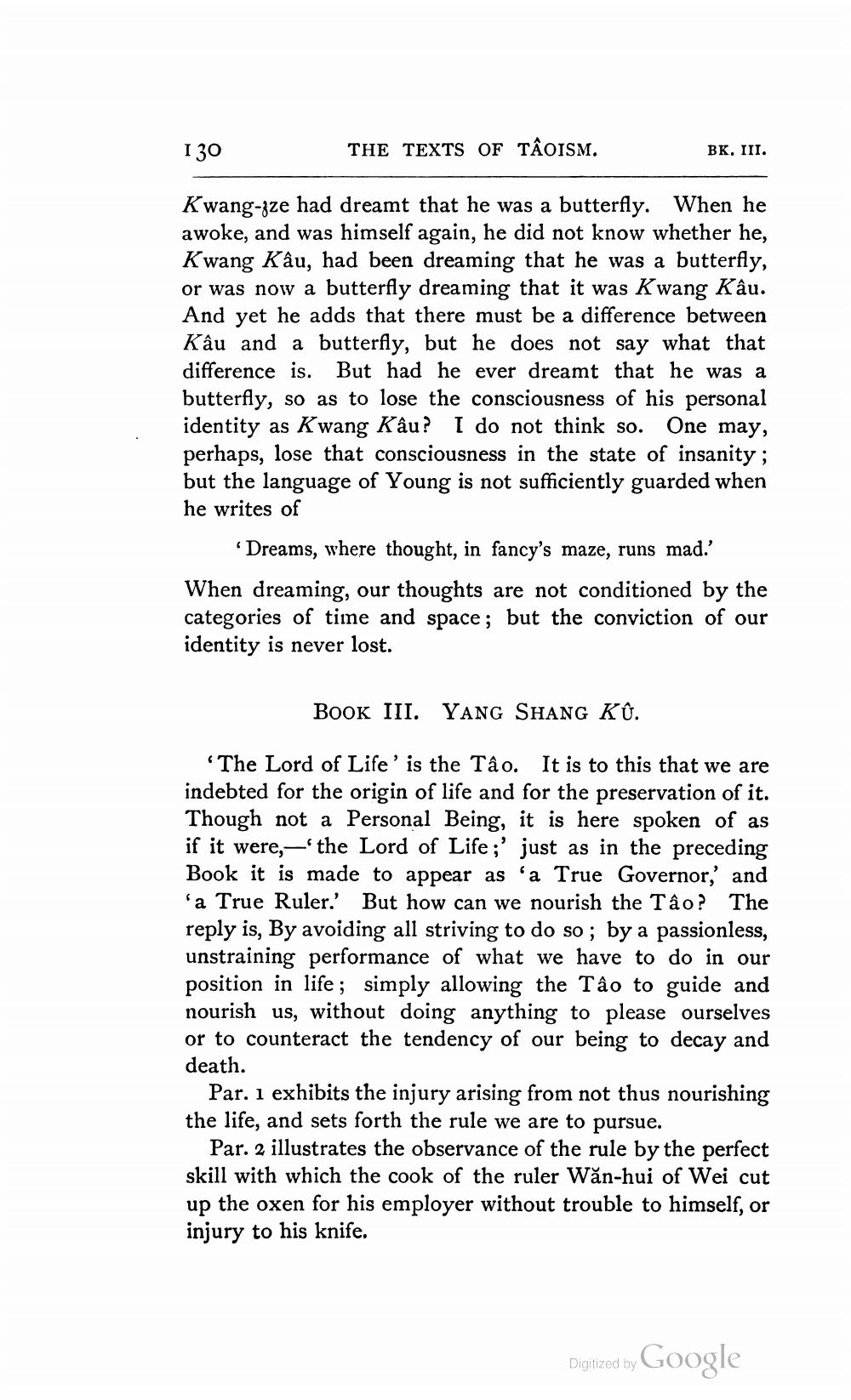________________
130
THE TEXTS OF TÂOISM.
BK, III.
Kwang-zze had dreamt that he was a butterfly. When he awoke, and was himself again, he did not know whether he, Kwang Kâu, had been dreaming that he was a butterfly, or was now a butterfly dreaming that it was Kwang Kâu. And yet he adds that there must be a difference between Kâu and a butterfly, but he does not say what that difference is. But had he ever dreamt that he was a butterfly, so as to lose the consciousness of his personal identity as Kwang Kâu? I do not think so. One may, perhaps, lose that consciousness in the state of insanity; but the language of Young is not sufficiently guarded when he writes of
* Dreams, where thought, in fancy's maze, runs mad.' When dreaming, our thoughts are not conditioned by the categories of time and space; but the conviction of our identity is never lost.
BOOK III. YANG SHANG Kû.
The Lord of Life' is the Tâo. It is to this that we are indebted for the origin of life and for the preservation of it. Though not a Personal Being, it is here spoken of as if it were,—the Lord of Life;' just as in the preceding Book it is made to appear as 'a True Governor,' and 'a True Ruler.' But how can we nourish the Tâo? The reply is, By avoiding all striving to do so; by a passionless, unstraining performance of what we have to do in our position in life; simply allowing the Tâo to guide and nourish us, without doing anything to please ourselves or to counteract the tendency of our being to decay and death.
Par. 1 exhibits the injury arising from not thus nourishing the life, and sets forth the rule we are to pursue.
Par. 2 illustrates the observance of the rule by the perfect skill with which the cook of the ruler Wăn-hui of Wei cut up the oxen for his employer without trouble to himself, or injury to his knife.
Digitized by Google




